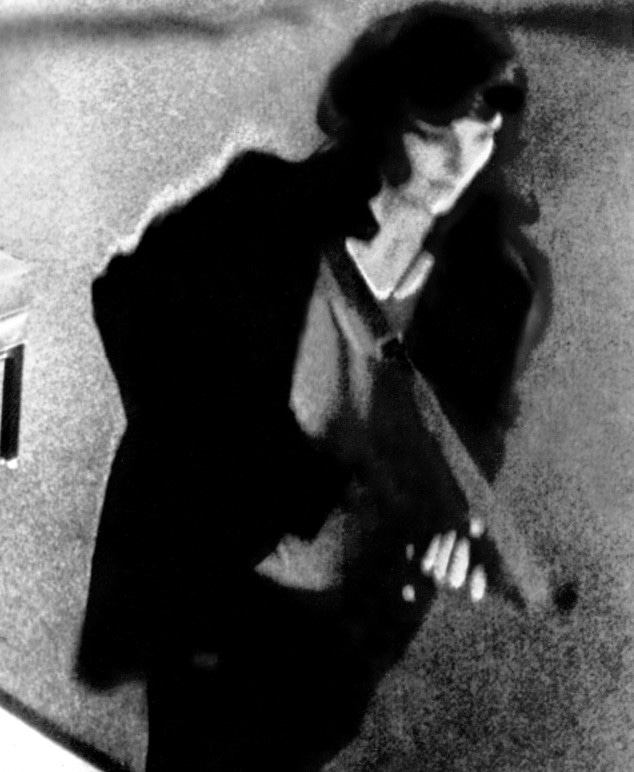 AFP/AFP/Getty Images
AFP/AFP/Getty ImagesThe People v. O.J. Simpson. Making a Murderer. Serial. The Case of JonBenet Ramsey.
Society's obsession with true crime-themed pop culture is no secret. The last few years of our collective lives have been filled with reliving the last few decades' most famous cases, trying to solve the unsolvable, and turning television shows and Twitter into vehicles of vigilante justice.
But little did we know, that these uber-popular shows aren't the only places that we digest true crime; in fact, references have been sneaking into our entertainment material for years now. It's time to take a little trip down memory lane.
Patty Hearst. Most people are well versed in the heiress' exploits with kidnapping and bank robbery, but little did we know she was also in the John Waters classic. By the time the venerable director approached her to play a part in his 1990 classic about a prim and proper schoolgirl, she had become Patty Hearst Shaw and was living in Connecticut with her husband and two daughters, well beyond the crime that made her famous. She played the mother of one of the characters, and has since gone on to do bits in Frasier and Veronica Mars, among others.
Trent Reznor and the Charles Manson Murder House. The Nine Inch Nails were a little...unconventional. No one disputes that. The same goes for the band's frontman Reznor, even if we've now come to associate him more with the scores of Oscar-winning flicks like The Social Network. If you're searching for proof on this unconventionality, look no further than their second album, The Downward Spiral. Reznor and his compatriots set up shop in none other than Sharon Tate's former home. And yes, we do mean the Hollywood Hills mansion where the actress and her friends were murdered by Charles Manson and his minions.
Even more odd, Reznor told The Rolling Stone back in the day that he didn't even know the home's origins when he rented it out—he was just looking for a cool spot to record, apparently. He called the revelation that it was actually the site of the murders a "coincidence" that was "even cooler" than previously thought. How fun for them.
The Band "Kasabian." Another day, another Charles Manson pop culture reference. This time we're talking about the British band Kasabian, which rose to popularity in the mid-to-late-aughts. Their original name was Saracuse, but they changed it in honor Linda Kasabian, a member of Charles' cult—in particular, she was famous for being the getaway driver. Just like Nine Inch Nails and their coincidence, this band claims not to have any passionate emotional ties to the Manson gang, but rather to just like the sound of the name. One of their members was reading up on the Manson murders and, apparently, Linda's surname just had a special ring to it.
"Evil Twin" by Enimem. Sure, this song was no "Lose Yourself," but not all songs can be Marshall Mathers' number one hits. The reason we're talking about "Evil Twin," though, is because it name-checks all sorts of true crime. There's the reference to Lorena Bobbitt ("Lorraine said I never can leave her/ She'd sever my wiener I ever deceive her). There's the reference to O.J. Simpson ("Jose Baez couldn't beat this rap, OJ no"). And there's the reference to Casey Anthony ("Hooray, I'm off the hook like Casey Anthony.") Phew, did you get all that?
"Hurricane" by Bob Dylan. The king of folk music is also pretty well known for his protest anthems, and this jam belongs firmly in that category. He wrote "Hurricane" about boxer Rubin "Hurricane" Carter, who was wrongfully imprisoned in the 1960's for murder. In a totally true-crime-in-pop-culture turn of events, Carter was released from prison.
"Jenny Was a Friend of Mine" by The Killers. We ourselves have to cop to regularly singing along to this song whenever it came on the radio, but we never took the time to Google and find out who "Jenny" was. As it turns out, she was 18-year-old Jennifer Levin, who was killed in New York City in 1986.